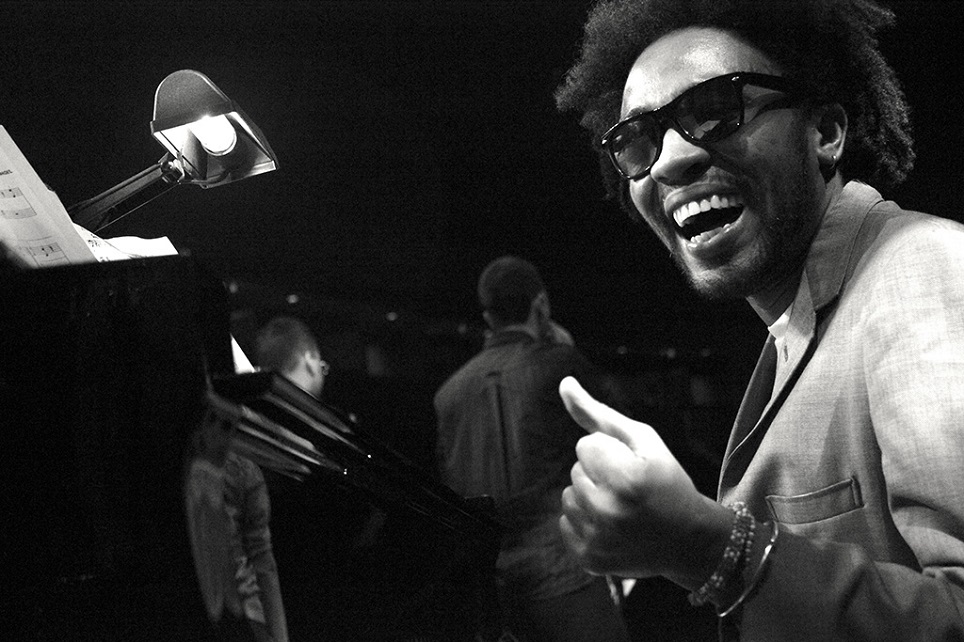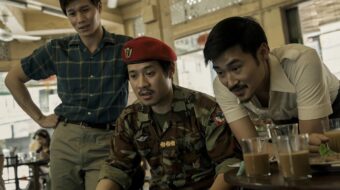
LOS ANGELES — The L.A. chapter of the U.S. Hands Off Cuba Committee (LAHOC) is gearing up for its fall calendar. A stunningly affecting concert performance on Sun., Aug. 27 in San Pedro, on the intimate stage of Alvas Showroom, was for many of those lucky enough to be attending that afternoon, their introduction to the work of this anti-imperialist group.
LAHOC’s mission focuses on three clear demands toward normalizing relations between the U.S. and Cuba: The removal of Cuba from the bogus list of State Sponsors of Terrorism (SSOT); the end of the blockade and the sanctions on trade and travel; and the return of the Guantánamo Naval Base to Cuba.
This concert was billed as a fundraiser for Medical Aid for Cuba—in the light of the pernicious, punitive blockade the U.S. has imposed on the island nation—and the final report was that the full house, standing room only, raised an impressive $2500 for Global Health Partners, the receiving agency.
The principal concert organizer was Angelica Cardona, with whom the Cuban trade union newspaper, Trabajadores, ran a full-page interview leading up to the performance. The two emcees were Guadalupe Cardona, president of La Raza Educators Association, and Mwezi Odom, an African People’s Socialist Party Defense Committee coordinator and a leader in LAHOC.
The main draw was the enormously talented young Afro-Cuban educator, pianist, and composer Dayramir González, multiple winner of Cubadisco awards for his 2007 debut album, and star of the Havana Jazz Festival, who came on after intermission. In the first part of the proceedings, the emcees greeted the audience with their gratitude for supporting LAHOC and its medical aid project. They introduced the drumming and dance ensemble Omo Aché, an Afro-Cuban cultural arts project featuring music and dance, based in San Diego. Omo Aché offered mesmerizing drumming and stories told in a women’s dance about enslaved and escaped African Cubans resisting Spanish colonial rule. An added highlight of this half was the solo male interpretation of the rumba, described as originally a display of virility meant both to ward off attack from other men and to show off as a means of courtship with women.
Dayramir González began his appearance with some timely remarks to the audience that came out to hear him. First, he reflected on his own musical education, growing up poor and Black in Cuba. Despite those factors, which in a country like the U.S. could spell severe limitations on a child’s exposure to music, to the right teachers, to parental ability to support a youngster’s interest in the arts, in Cuba he had every opportunity available to him. At the same time, Cuba is still a poor country with the heavy burden of the U.S. blockade around its neck. He shared the story of his brother who died of a rare cancer in his 20s a decade or so ago and speculated that perhaps, just maybe, a certain promising drug used in the U.S., if his brother could have gotten hold of it, might have saved his life.
After each number that he played, one of González’s two small children would walk over to the piano and give his papá a big hug. His wife and family were able to come to L.A. for this intimate performance. The pianist began his set with a 10- or 12-minute fantasy on Cuba’s famous song, “Guantanamera.” Although everyone in the audience was familiar with the tune, in González’s arrangement he seemed to guide his listeners on a journey through every phase of modern jazz, and even classical techniques, to expand and flesh out the iconic melody, elevating it, as Frederic Rzewski did with his variations on the Chilean revolutionary anthem “The People United Will Never Be Defeated!,” into an otherworldly realm.
González exploited the native Cuban repertoire in his reinterpretations of Ernesto Lecuona’s music, once again taking a well-known standard and remaking it in his own distinctive, inimitable image. I was unable to catch the names of all the numbers González included in his program, but he is known for his own compositions as well. The songs played in a compilation video (see below), are “Sencillez,” “Smiling,” “Camello Tropical in NY,” “Situaciones en 12/8,” “Blood Brothers,” and “La Teresita.” Some of these compositions are featured in his most recent album, The Grand Concourse, named for the thoroughfare that runs through The Bronx. He currently is based in New York.
At the end, he played one entrancing encore, then posed with his kids for photos. A grand time was had by all—and for a worthy cause!
An almost 7-minute-long video of González appearing at Grand Performances 2021 can be viewed here. Another video showing him at Grand Performances, Lincoln Center, Carnegie Hall, the Kennedy Center, and Havana’s Teatro Nacional, can be viewed here. Hear him speak about his life, his early mentors such as Chucho Valdéz and his education at the Berklee College of Music, other aspects of his career and art in this video. A search for his name will also bring up other videos of him in performance.
If you happen to be in or traveling to Spain, he’ll be appearing in Madrid Sept. 6, Barcelona Sept. 12-13, Eixample Sept. 13; also the Havana Jazz Festival Jan. 21-28, 2024, and in La Jolla (San Diego Calif.) on April 19.

Remember, Readers, if it’s People’s World where you heard of him first! Of course, if you are a reader of The Wall Street Journal, you may have read their admission that “Mr. González is a stunningly gifted composer and arranger.” Downbeat and JazzTimes have reviewed him ecstatically.
LAHOC’s efforts do not go unrecognized. The chapter chair received a note of thanks from the CTC (Cuban Workers Central) International Affairs Director, Miguel Ángel, saying, “Excellent brother, together we can do more, in unity is strength. Success in everything you propose. Very grateful everyone for the actions you have managed to do in favor of the Cuban population and the trade union movement.” A congratulatory note came from Kenia Serrano, former North American ICAP director (Cuban Institute of Friendship with the Peoples), and from Global Health Partners director Bob Schwartz. In summation, Mickey Chavez, President of the Southern California District Council of the ILWU, said: “It was a great show, had a wonderful time. Keep up the good work and we will for sure continue supporting this great cause.”
Cubana 455
In its ongoing work, LAHOC will screen this newly edited documentary film on Sat., Sept. 30. It tells a compelling story that the world needs to know about. On October 6, 1976, a civilian flight, Cubana 455, was bombed in flight off the coast of Barbados, killing 73 civilians. This barbaric act happened 25 years before 9/11 and was the first terrorist act against a civilian airliner in flight.
This diverse coalition reexamines the sabotage and exposes what happened, who was behind the crime, and how the terrorists were treated favorably, especially by the U.S. government. LAHOC is screening Enrique Berumen García’s feature-length documentary Cubana 455: Chronicle of October 6 as an educational tool to create a U.S.-based movement which will support the observation of October 6 as an International Day Against Terrorism to honor all victims of terrorism around the world. The Caribbean region will have its first Day Against Terrorism this year on October 6.
Cubana 455 screens on Sept. 30 at 6 p.m. at Tia Chucha’s Centro Cultural & Bookstore, 12677 Glenoaks Blvd., Sylmar, CA 91342. For further information call (818) 939-3433 or contact: docuCubana455@gmail.com.
For further details go to: the U.S. Hands off Cuba website or email LA.US.Handsoffcuba@gmail.com. The Instagram account is: @ushandsoffcuba, and the WhatsApp and cell is (310) 350.7515.
We hope you appreciated this article. At People’s World, we believe news and information should be free and accessible to all, but we need your help. Our journalism is free of corporate influence and paywalls because we are totally reader-supported. Only you, our readers and supporters, make this possible. If you enjoy reading People’s World and the stories we bring you, please support our work by donating or becoming a monthly sustainer today. Thank you!












Comments